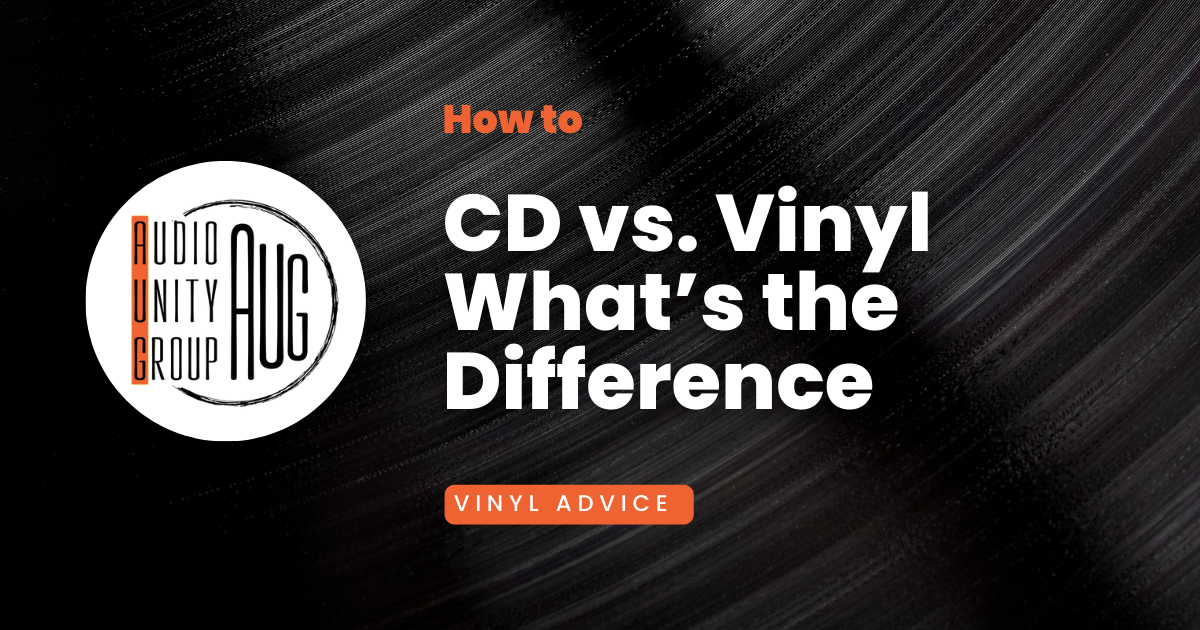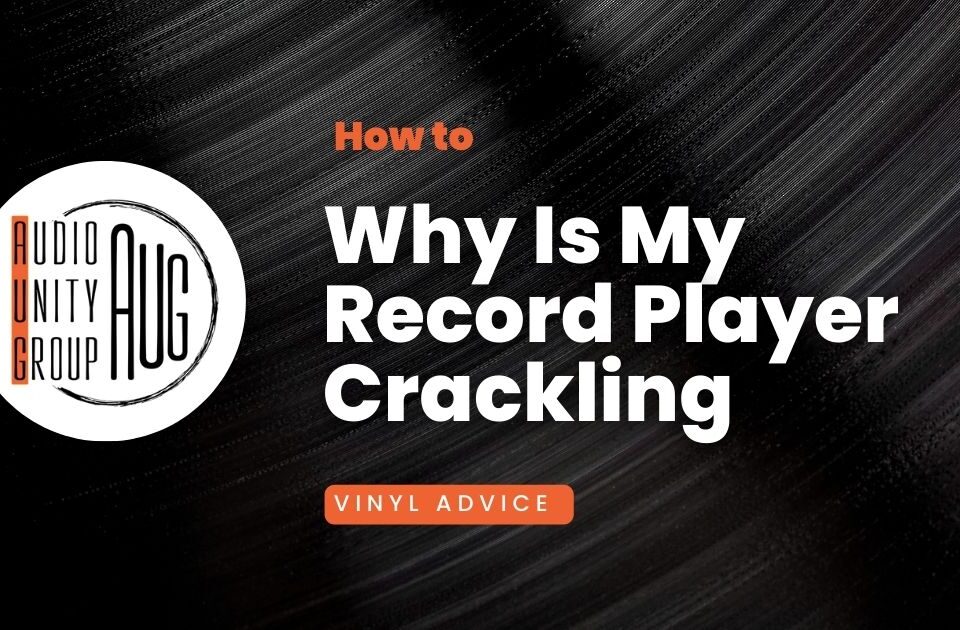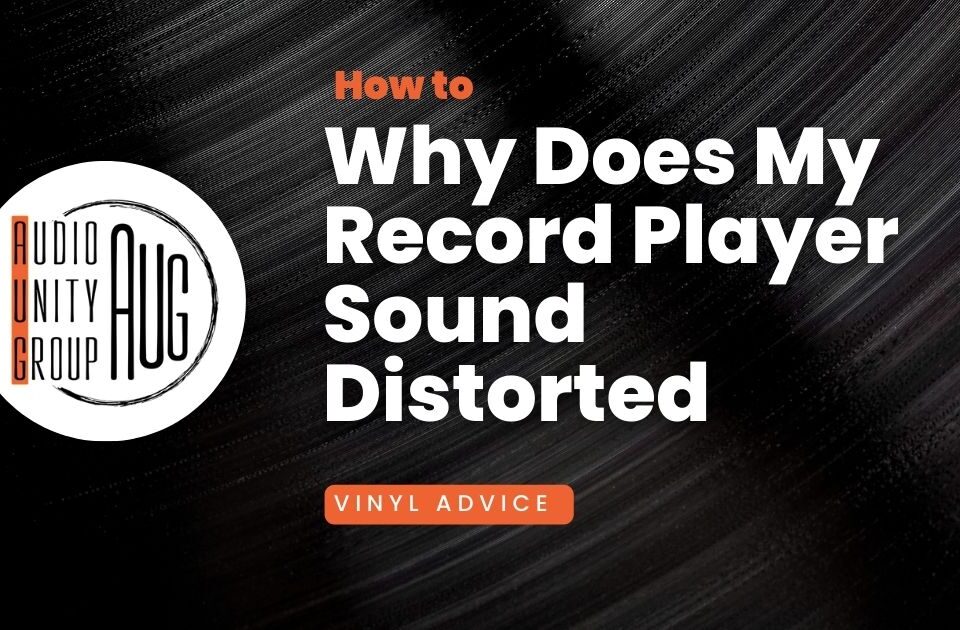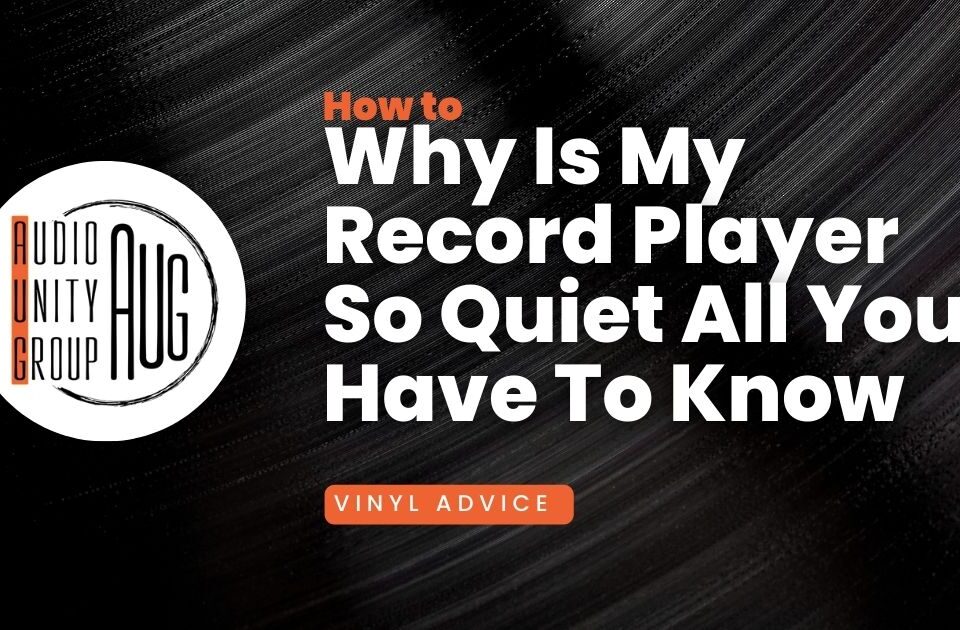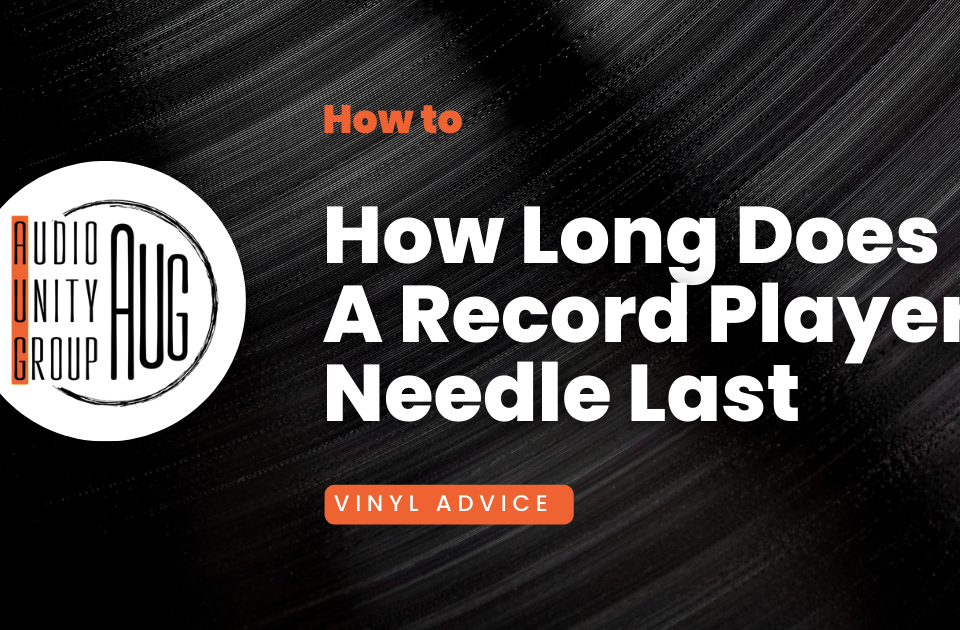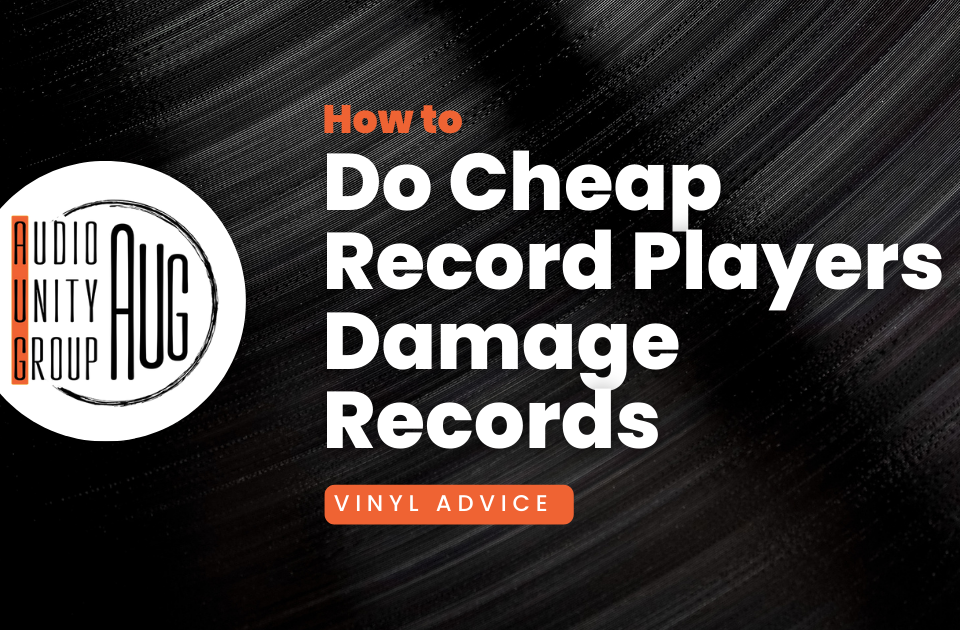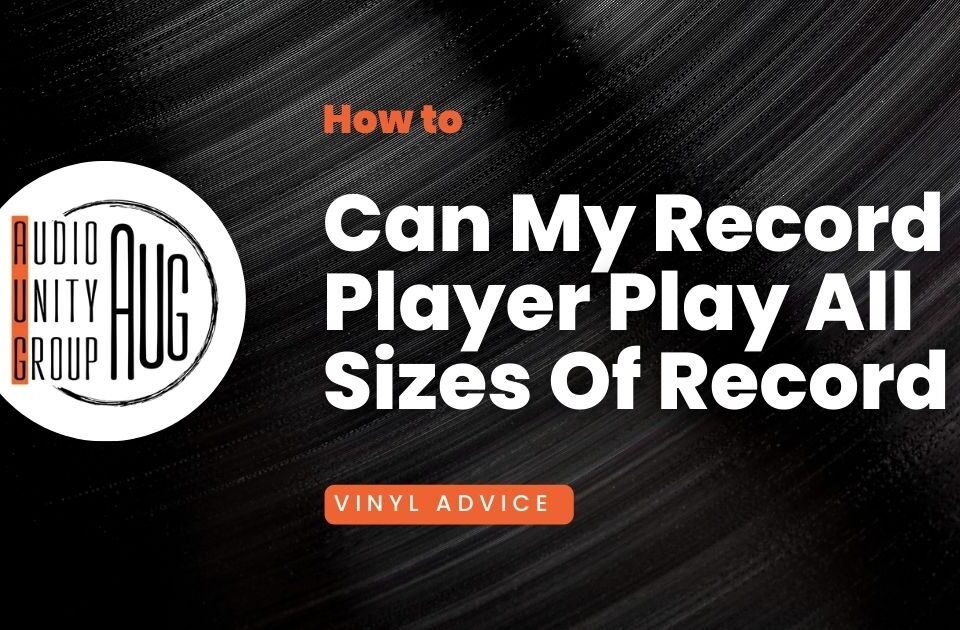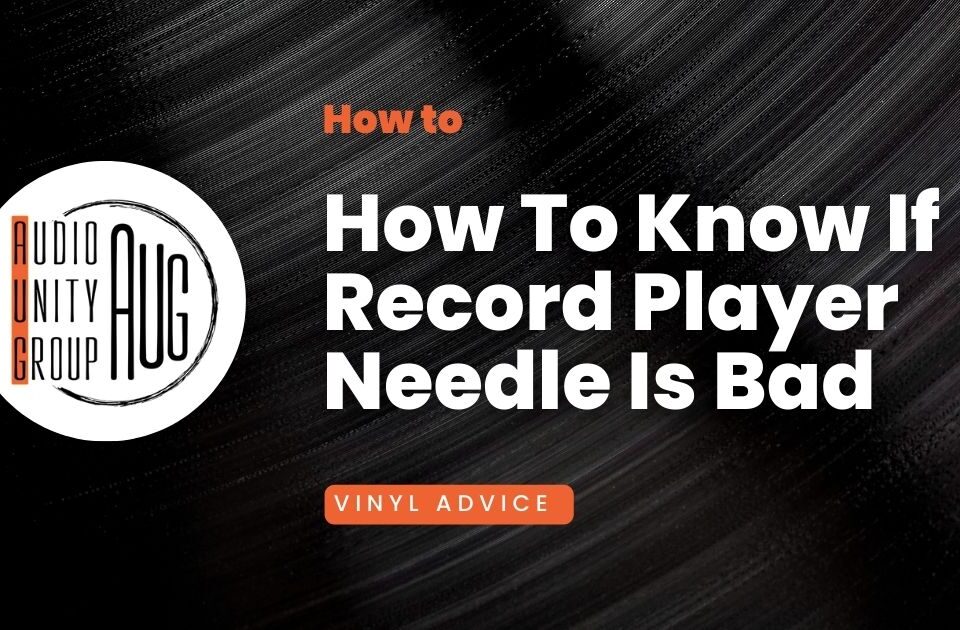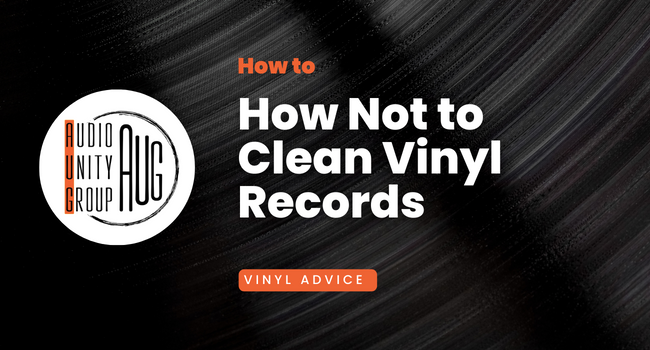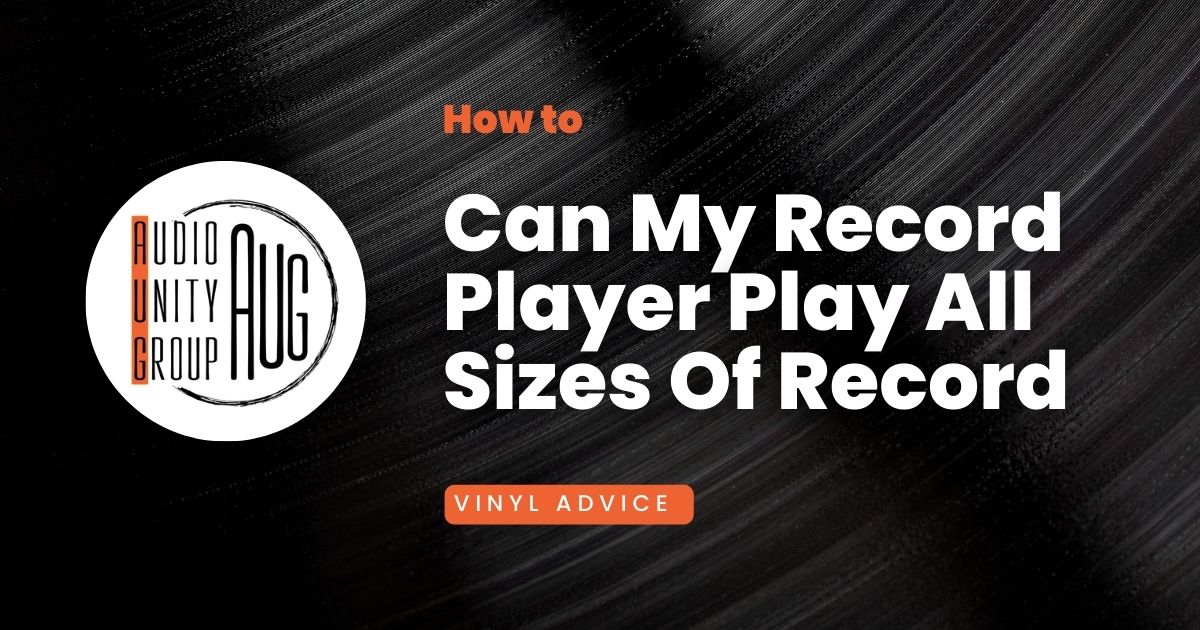
Can My Record Player Play All Sizes Of Record: The Answers
May 28, 2023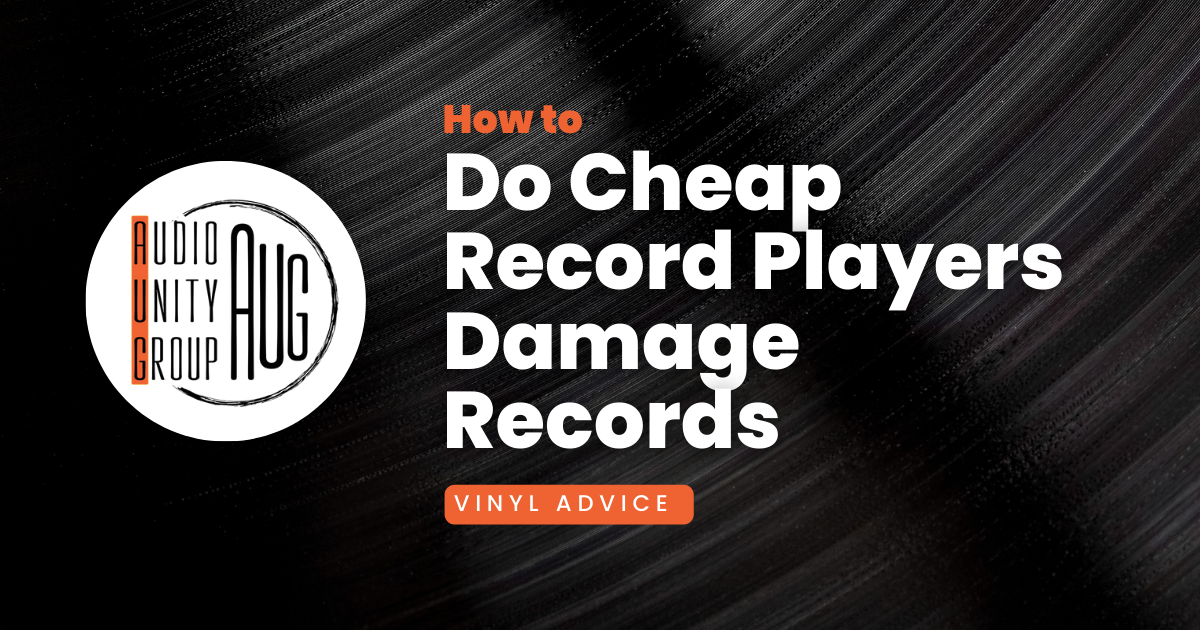
Do Cheap Record Players Damage Records: The Real Truth
June 10, 2023Last Updated on June 23, 2023 by Tom S. Ray
CD vs Vinyl What’s The Difference
Mentioning the great feud surrounding CDs versus vinyl records would be an understatement.
These two audio storage formats have been competing for years, and fans of either side can often be found fiercely debating sound quality, listening experience and other topics.
So let’s debunk it.
CD Vs Vinyl: Understanding The Differences
In this section, we’ll explore the differences between CD and vinyl audio formats in terms of their history and production, sound quality, storage and durability as well as listening experience.

History And Production
CDs and vinyl records have emerged as two distinct musical formats each with its own unique sound, history and production process. CDs, otherwise known as Compact Discs were developed in the early 80s from patented technology by Philips and Sony that enabled stored digital audio.
Rather than continuous signals used on analog formats like Vinyl Records (which came about during the 1950s), CD recorded music is composed of a series of samples per second – 44,100 samples every second to be exact.
Vinyl records are an analogue format which spin a groove across the surface via stylus to recreate what has been captured on tape or disc-based media such as 78rpms or 45rpm discs at varying rotational speeds since the 1900’s.
Sound Quality
CD and vinyl records both have distinct sound qualities, however it is important to note that there is no scientific proof of the sonic superiority of vinyl medium compared to CD.
CDs are digital recordings, meaning that the audio is converted into a digital format before it is burned onto the CD, while vinyl records are analog where information about musical waves or vibrations are defined by physical grooves on a record.
CDs have a better signal-to-noise ratio and digital audio quality is technically superior to vinyl when factoring in attributes such as dynamic range, frequency response and low distortion.
If you’re curious about why some vinyl records can become damaged over time, it’s worth examining the role of unstable turntables and tonearms in the process.
While CDs are resistant to wear and tear, vinyl records offer a unique, organic feeling found within flipping through layered tracks, but this experience can vary depending on the compatibility of your record player with different record sizes and speeds
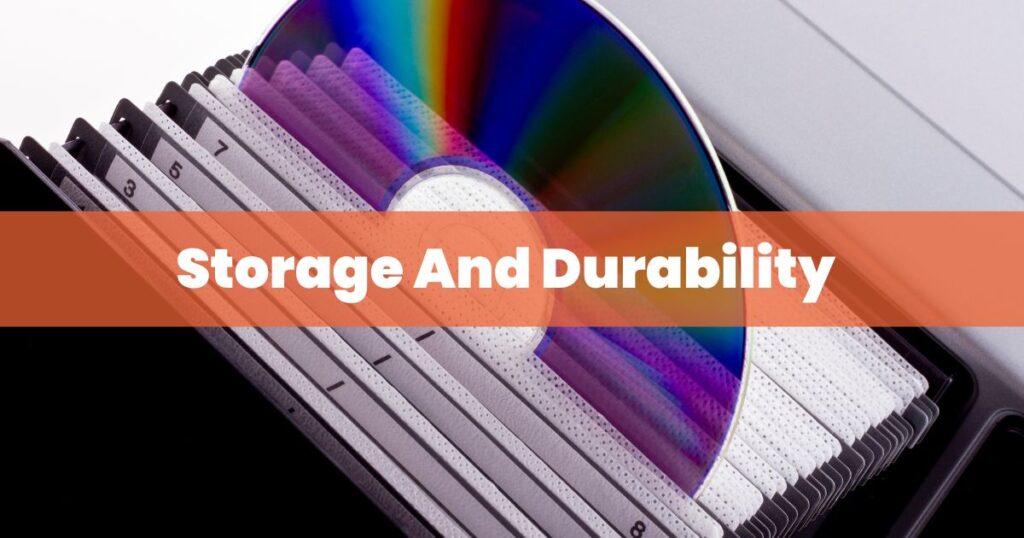
Storage And Durability
When it comes to physical music media, two of the most commonly used formats are CDs and vinyl records. They differ in many aspects, including storage and durability. CDs store audio digitally while vinyl stores audio in analog form, which affects their respective lifespans.
On average, a CD can last up to 2 decades depending on usage conditions such as temperature or humidity levels.
The digital storage also makes them more resistant to wear and tear compared to vinyl records, which tend to suffer from degradation if not properly stored or cared for– if not kept away from heat sources like direct sunlight and warm dust-attracting environments.
With proper maintenance though, both CDs and Vinyl can have very long lifespan is well taken care of . For example, an album treated with careful packing each time will certainly last longer than one without proper handling practices implemented from the start (even if you’re using cheaper turntables)

Listening Experience
The temperature of a room, the quality of your equipment and even the size of your collection can all have an effect on how you experience music. CDs and vinyl records offer two very different listening experiences for audiophiles.
A CD is a digital audio format that stores sounds as numeric data points known as samples. The advantage here is precision: CDs use high sampling rates to capture sound with minimal interference from analog sources such as tape hiss or hum.
They sound incredibly crisp but could be too clinical for some folks who feel like something is lost in between pressing record and playback. To appreciate this unique sound signature, we recommend starting off with tracks recorded digitally like classical or jazz recordings which require clarity over ambience.
Vinyl records offer much more warmth and character compared to digital media due to its analog process which captures vibrations over time rather than in small chunks at certain frequencies (as sampled by CD).
The large grooves add depth while introducing imperfections during playback – they’re immeasurable features that make each pressed album unique to itself.
This kind of organic feeling found within flipping through layered tracks emulates decades-old recording techniques that are fading away these days – especially when paired with older type speakers! It best suits genres like hip hop, funk, rock and certain jazz songs where atmosphere takes precedence over technical brilliance / fidelity on lower budgets productions .
Debunking Myths About CD And Vinyl Records
In this section, we’ll debunk the common misunderstandings about CD and Vinyl Records.
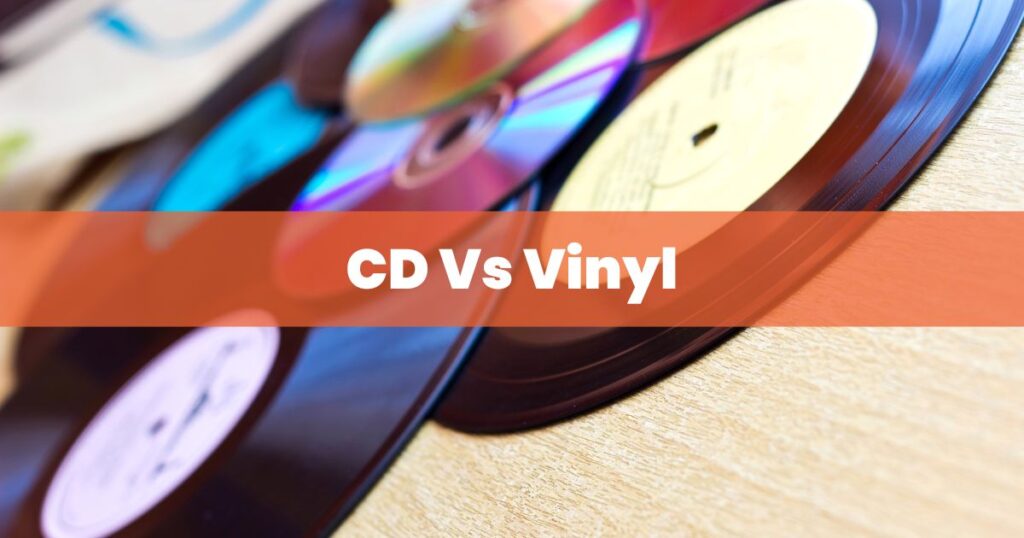
CD Vs Vinyl Sound Quality Debate
CDs and vinyl records have long been debated for their relative sound quality. CDs boast clear, dynamic audio with a limited amount of noise, while many audiophiles insist that vinyl offers superior sound quality due to its analog format.
But which one is objectively better? It all comes down to understanding the key differences between CD and vinyl.
The technical differences between them are due to how each format produces music: CDs are digital formats that record songs as sampled data points spread out along a track; on the other hand, older analog formats like cassette tapes and LPs (vinyl) store music as physical patterns– or grooves—on a medium surface material.
This means there can be more musical information stored in analogue recordings compared to digital ones leading some say higher levels of audio fidelity when using equipment with good precision tracking capabilities – something only really achievable currently on high-end turntables such as technics! In order for this enhanced audio detail to be heard you will also usually need higher end stereos capable of reproducing these nuances well – rather than typical home entertainment systems found most households today.
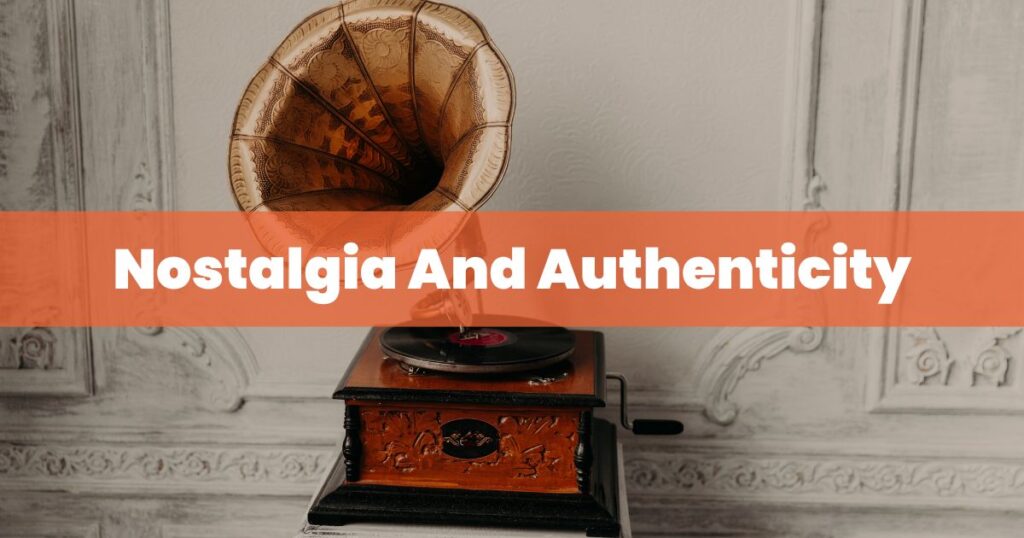
Perception Of Nostalgia And Authenticity
Today, vinyl records are often associated with nostalgia for childhood memories or family time. For many music lovers, the format is seen as a highly sought-after collectible item and its unusual size can add to the charm of owning them.
Vinyl’s popularity isn’t simply based on nostalgic value though; there has been an undeniable resurgence in interest among audiophiles who seek out a better sound quality compared to streaming services or digital downloads.
This is due to vinyl being able to carry higher frequency ranges than CDs, provided that they are well looked after since mistreatmentcan cause damage or degradation over time (such as warping).
Pros And Cons Of CD And Vinyl Records
In this section, we will look at the pros and cons of CDs and vinyl records in terms of sound quality, ease of storage, cost considerations and listening experience.
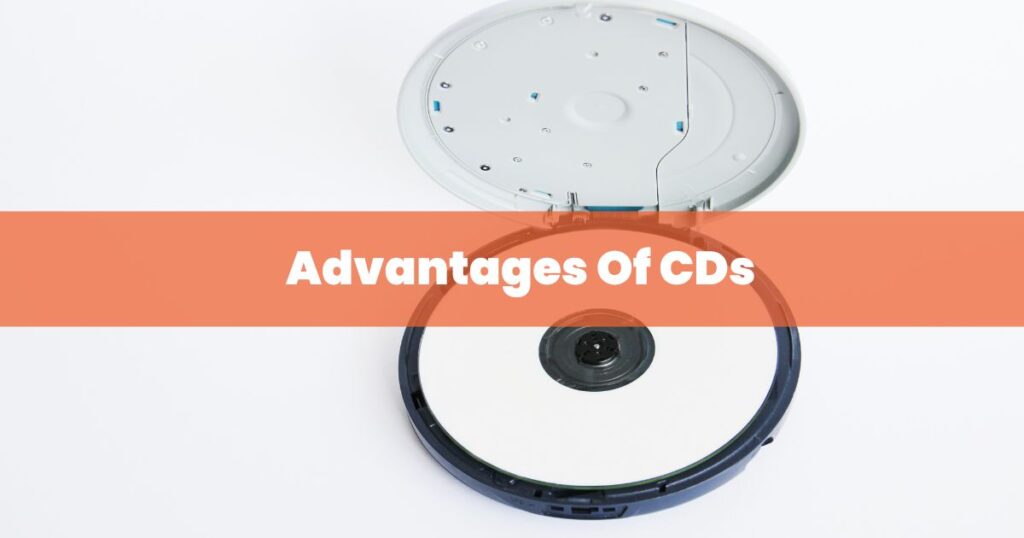
Advantages Of CDs
CDs offer a great level of convenience and sound quality that is far superior to vinyl records. Because CDs are digital recordings, the audio data is digitally encoded before burning onto the CD.
This ensures clear and precise playback quality thanks to error correction technology when storing digital files on a CD compared to analog sources such as vinyl records, which lack this feature.
Additionally, CDs require less physical space than traditional vinyl albums making them easier to store and transport. They also have higher durability due to their stronger resistance against breakage or corrosion compared with vinyl albums.
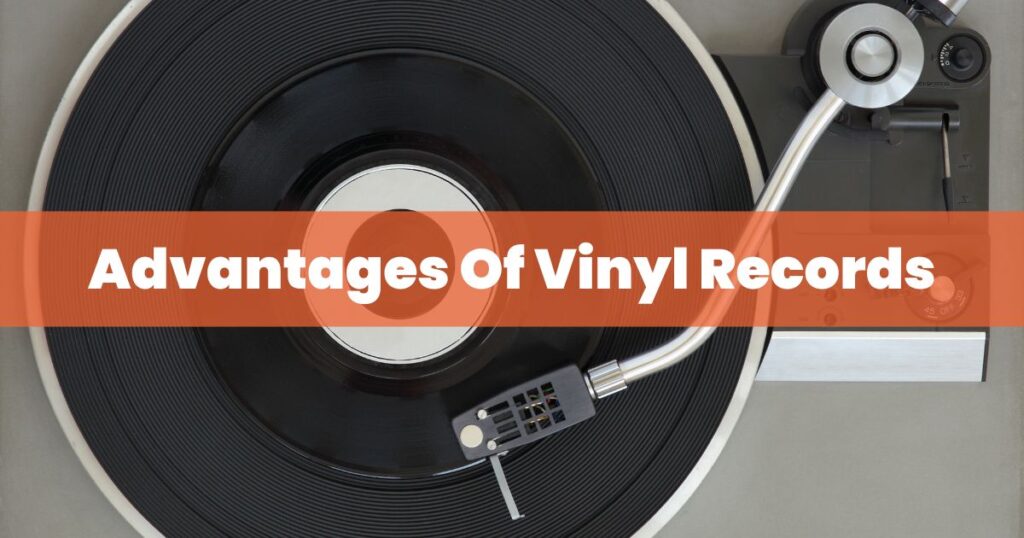
Advantages Of Vinyl Records
Vinyl records have become especially popular amongst music enthusiasts in recent years due to their unique sound quality and listening experience. Analog recordings, combined with grooves that store continuous information, produce a warmer and richer sound than CDs.
Additionally, the tactile experience of handling a vinyl record can be quite satisfying for some music lovers. Compared to CD’s polycarbonate material, vinyl records are much less prone to scratches or damage from accidental drops; however they are still fragile objects needing careful handling.
With respect to playability and tracking errors, vinyls offer superior performance compared its digital counterpart as there is no risk of sampling errors or skipping with analog tapes or records.
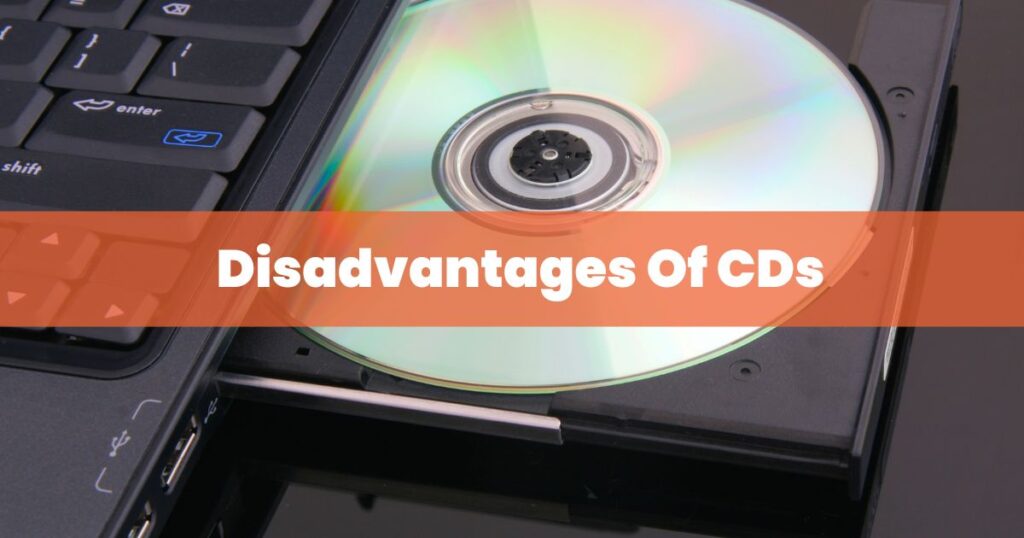
Disadvantages Of CDs
One of the biggest drawbacks of CD recordings compared to vinyl is sound quality. CDs store sampled information while vinyl stores a continuous analog signal which can be better at preserving the original and intended sound of recordings or music.
Additionally, CDs have been heavily used as part of the ‘loudness war’ where music is compressed into unnaturally loud sounds resulting in distorted audio that lacks dynamics.
Vinyl records are generally credited with being much better at preserving dynamics when it comes to storing and playing physical media because they don’t have digital limitations like CDs do.
Durability is also an issue for CDs; unlike their heavier counterpart, Vinyl records, Optical Discs are more susceptible to damage from scratches or fingerprints.
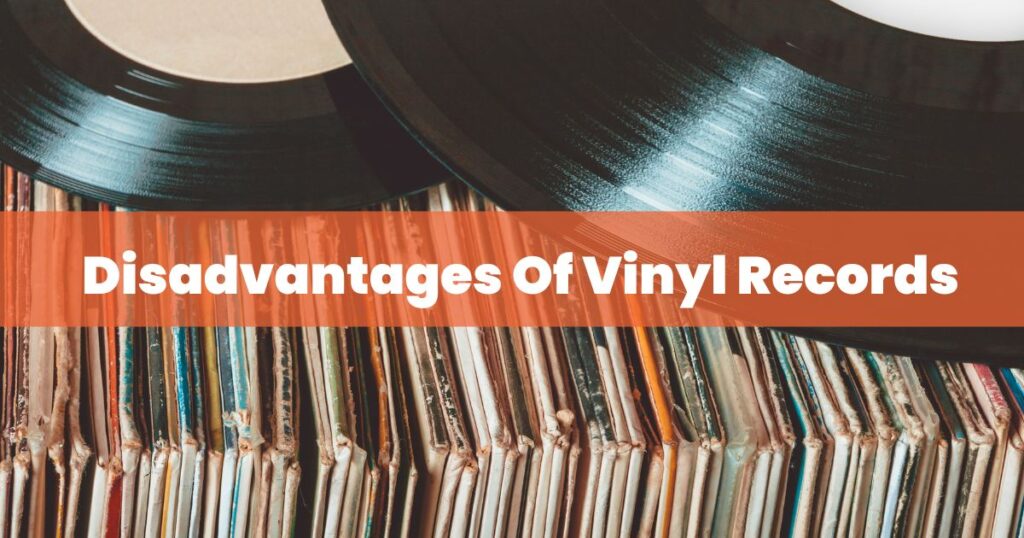
Disadvantages Of Vinyl Records
As classic as vinyl records are, there are a few drawbacks associated with the physical music medium that may make CDs more appealing or preferred. Although vinyl can produce great sound quality and reproduce original recordings better than digital formats, it’s physically limited compared to compact discs (CDs).
In this case, the disc must be continually spinning on the turntable until finished playing in order for no distortion or skipping to occur.
Additionally, because of their size and weight storage is especially hard when trying to travel light. Records may also wear out faster if not properly cared for since mishandling them by scratching will cause sound reproduction problems.
Furthermore, due to pressing imperfections which happens during production process itself and their fragility makes obtaining high-quality audiophile copies from companies difficult and expensive.
Which Format To Choose: CD Or Vinyl?
At the end of the day, deciding which format is best for you depends on personal preference, cost and a variety of other factors.
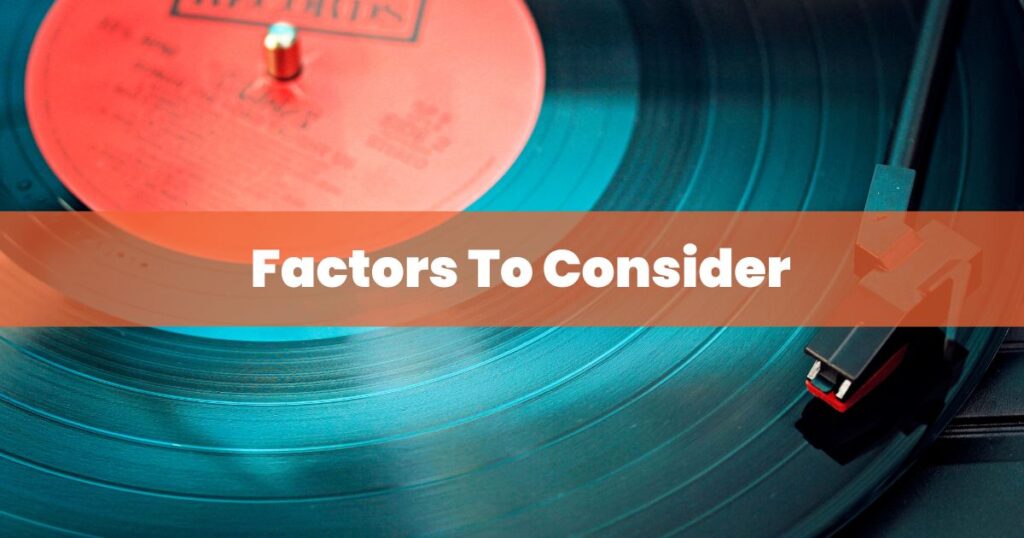
Factors To Consider
When making a decision between CD and vinyl formats, there are many things to consider. First and foremost is the quality of sound reproduction each format offers. Vinyl records use analog technology – it continuously stores information in individual grooves on the record, providing an often warm, rich listening experience with more depth of sound than CDs.
On the other hand, compact discs employ digital sampling or “quantization” method of recording which breaks down sounds into tiny segments resulting in less-natural but infinitely precise audio – while typically offering greater clarity.
Next is likely factor that plays into any decision when buying music: cost and availability. Music lovers should take note of pricing differences depending on both format type itself as well as production regions; for example Japanese pressings may be significantly cheaper than US imports due to shipping costs etc. Similarly storage considerations must also be taken before investing wisely in either format since larger collections can become cumbersome over time if one doesn’t have much flexible space available (vinyl dominates limited space even more compared to CDs).
It’s good habit also maintain your collection properly by regularly cleaning them too avoid dust impairing playback fidelity regardless album size you own eventually.
Finally one probably could not overlook desire for music enjoyment from their favorite artiste especially through physical mediums like vinyl records that bring nostalgic feelings perhaps emanating from artwork promising value added versus simply downloading songs digitally now commonplace era we live today! After taking these topics into consideration whilst bearing personal preferences reason why everyone unanimously thinks CDs different see price variety vintage romanticism involved a hobby collecting rare out print/limited runs having fun conjuring images crated surround yourself keepsakes showing appreciation creative masterpieces makes perfect cycle victory ultimately celebrated by whole society all same!
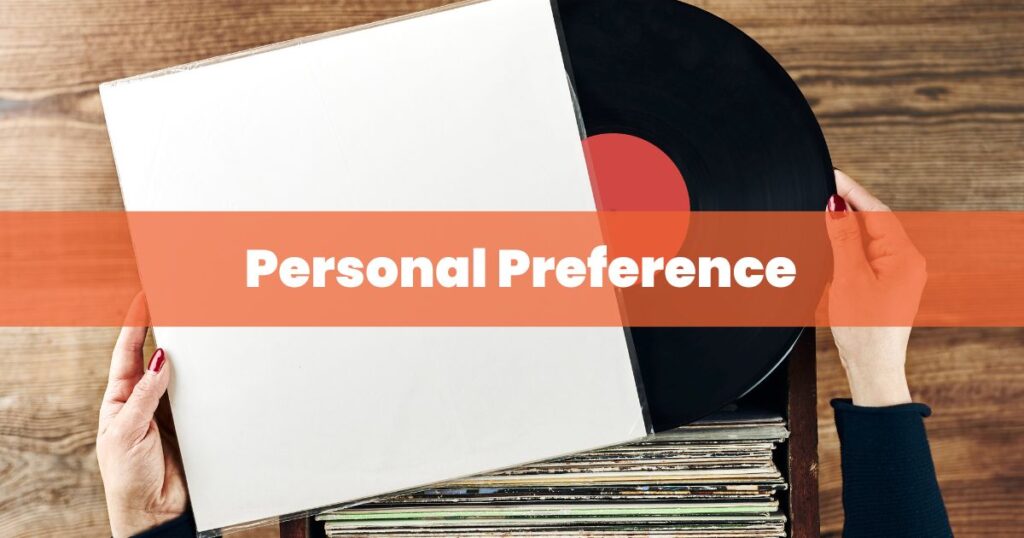
Personal Preference
When it comes to choosing which physical music media format to use for playback, personal preference is a major factor. People tend to choose either CD or vinyl based on what appeals to them the most in terms of sound quality, listening experience and nostalgia.
Those who prefer CDs often point out that they offer louder volume compared with vinyl records as the digital stream has uniformity throughout its duration. Digital technology also minimizes surface noise while playing different types of audio when compared with analog technology used in vinyl recordings.
On the other hand, some people like to opt for vinyl because of its rawer, warmer sound and even better stereo separation than CD’s can bring — but this in itself often depends on various factors such as maintaining clean grooves in order to ensure optimal playback performance.
Moreover, a lot of people are drawn towards Vinyl records due their tactile nature; dropping a needle on an LP offers an engaging visual/audio experience that many find more satisfying than streaming via mobile device or any other kind of digital media sources.
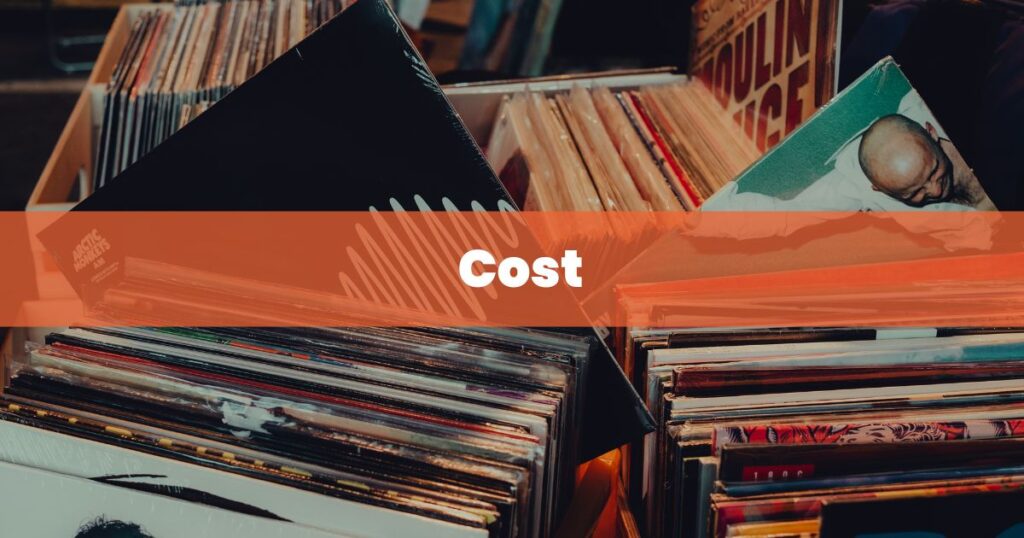
Cost
CDs and vinyl records come with different price tags. CDs tend to be cheaper than vinyl, but it’s important to remember that there are multiple factors contributing to the variance in cost between the two formats – including production costs, demand for a certain format, superior sound quality of one format over another, availability in stores and online.
Generally speaking, CDs have been an entry-level medium for music enthusiasts as most titles are priced lower than LPs because they generally cost less to produce. Vinyl manufacturing requires more labor-intensive processes compared to digitally duplicated compact discs (CDs).
Moreover, the pressing process is expensive which affects the prices too. Conversely for some audiophile titles or specialist pressings on vinyl can rise substantially higher price points even when compared against more costly cd versions offering longer playing times and superior audio engineering achieved through mastering techniques suchas high resolution 24 bit/96kHz remastering transfers derived from original analogue master sources bringing greater clarity reproduced on disc or LP formats respectively.
The Future Of Physical Music Media
From digital streaming to physical media, it is clear that vinyl records and CDs are here to stay.
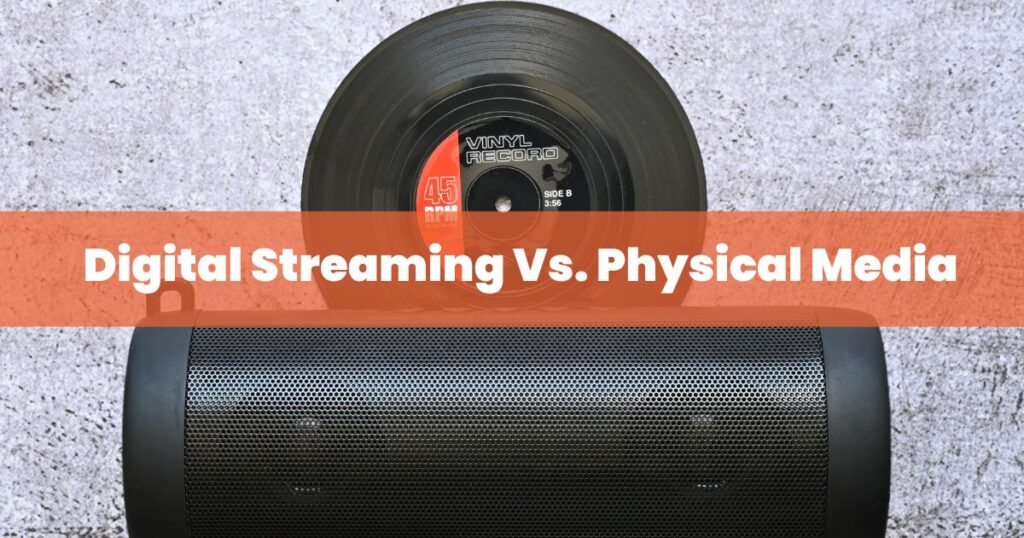
Digital Streaming Vs. Physical Media
The debate between digital streaming and physical media, such as CDs and vinyl records, has been ongoing for some years. Streaming offers unparalleled reach and portability; after all, what other format allows music fans to access nearly any song in a matter of seconds? However, when it comes to sound quality many listeners feel that physical formats are superior.
CDs can provide higher-quality sound than streaming programs while vinyl provides an authentic listening experience with its distinctive warm tone. Moreover, the tactile nature of placing a record on the player contributes to the nostalgia associated with this medium.
Furthermore, although sales of physical music media have decreased over the past few years – largely due to technological advancements –the market still remains strong for cassette tapes and vinyl records.
Music fans appear to be turning from streaming back towards tangible formats as part their collection or listening habits. This resurgence could potentially be due to cost issues as well: depending upon how many songs you wish buy/stream each month, going directly vinyl record or CD may be cheaper than subscription-based services like Spotify or Apple Music.
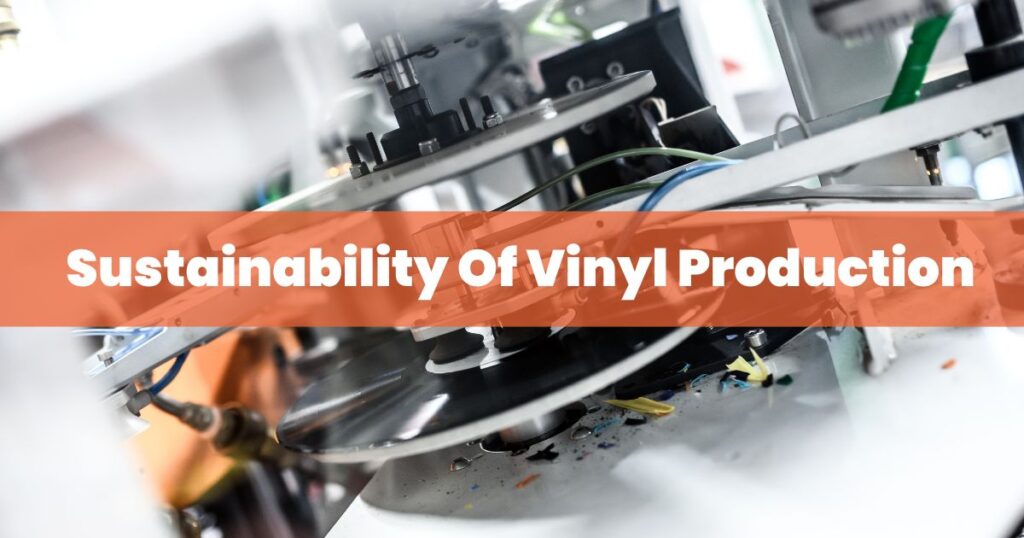
Sustainability Of Vinyl Production
Vinyl records have been popular for many decades and are beloved by music lovers for their distinct features that are not available in digital formats. However, the manufacturing process of vinyl records is energy consuming, with a large carbon footprint which has caused concern over its sustainability.
To address this issue, some manufacturers have implemented sustainable production practices such as using recycled materials to reduce their environmental impact. These initiatives do help lower the amount of energy needed to produce one record but have had limited success due to rising demand and difficult-to-source raw materials.
Moreover, vinyl remains more resource intensive than music streaming when it comes to carbon emissions making it challenging for vinyl producers to compete against online providers.
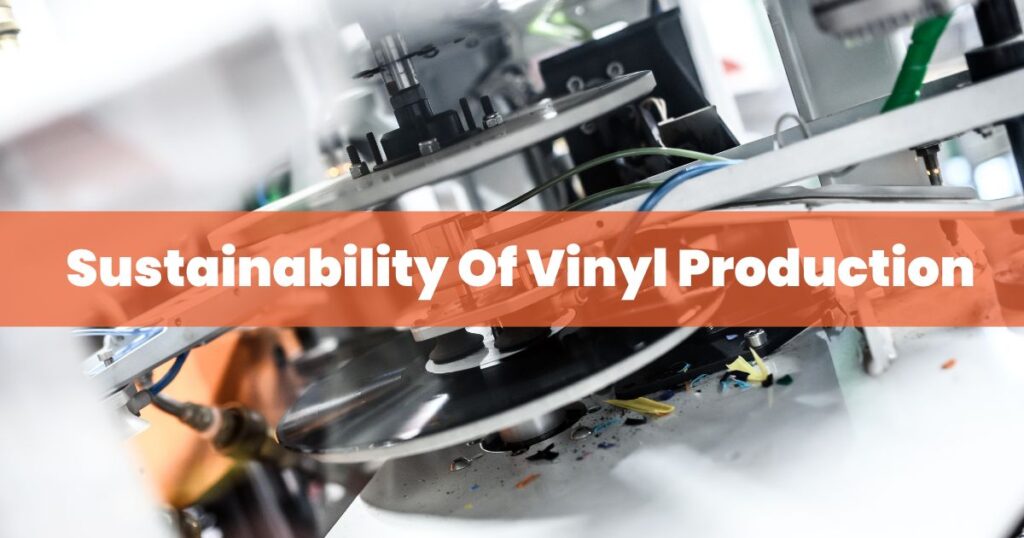
The Resurgence Of Vinyl
In recent years, an exciting trend has emerged in the music world: Vinyl records are back! After decades of popularity waning in favour of CDs and digital formats, vinyl has experienced a massive resurgence.
Whilst the nostalgia factor associated with these physical media can’t be denied, there is also something more to this resurgent interest; listeners appreciate how record players require active engagement, from flipping sides and manually cueing up tracks to observing as steadying tonearm glides over grooves etched into a disc.
Many audiophiles on the other hand appreciate their perceived sound quality such as its warmth and richness that imbue audio with greater depth—a difference greatly affected by a range of external factors including equipment used for playback and pressing quality.
This unique listening experience makes it possible for musicians’ work to transcend mere reproduction into emotionally powerful expressions conveying its creator’s vision without compromise.
All in All
The debate between CD and vinyl has been going on for decades and is likely to continue for years to come. Ultimately, the choice of which format to choose largely depends on personal preference, affordability, availability of content and technology – but the sonic experience one gets out of these two mediums can be completely different.
While CDs generally offer a cleaner sound with more consistent playback conditions when compared against vinyl records, many audiophiles argue that analog recordings provide an enhanced listening experience due to its warmness and unique mastering options.



